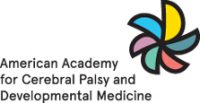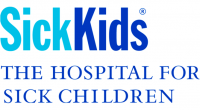CPCHILD™
Caregiver Priorities and Child Health Index of Life with Disabilities
Questionnaire
The CPCHILD™ questionnaire is available in the following languages. Please register for a license prior to use.
CPCHILD Caregiver Versions
- CPCHILD™ Caregiver English (PDF)
- CPCHILD™ Caregiver Bahasa Malaysia (PDF)
- CPCHILD™ Caregiver Brazilian Portuguese (PDF)
- CPCHILD™ Caregiver Canadian French (PDF)
- CPCHILD™ Caregiver Chinese (PDF)
- CPCHILD™ Caregiver Danish (PDF)
- CPCHILD™ Caregiver Dutch (PDF)
- CPCHILD™ Caregiver Farsi (PDF)
- CPCHILD™ Caregiver French (PDF)
- CPCHILD™ Caregiver German (PDF)
- CPCHILD™ Caregiver Hebrew (PDF)
- CPCHILD™ Caregiver Korean (PDF)
- CPCHILD™ Caregiver Norwegian (PDF)
- CPCHILD™ Caregiver Polish (PDF)
- CPCHILD™ Caregiver Spanish (PDF)
- CPCHILD™ Caregiver Swedish (PDF)
- CPCHILD™ Caregiver Turkish (PDF)
- CPCHILD™ Caregiver Czech (PDF)
CPCHILD Child Versions
- CPCHILD™ Child English (PDF)
- CPCHILD™ Child Canadian French (PDF)
- CPCHILD™ Child Swedish (PDF)
Primary Contributors
- Unni Narayanan (English)
- Ling Wee Wei (Bahasa Malaysia)
- Luiz Antonio Pellegrino (Brazilian Portuguese)
- Reggie Hamdy (Canadian French)
- Toh Teck Hock (Chinese)
- Bjarne Møller-Madsen (Danish)
- Trees Zalmstra (Dutch)
- Mehdi Rassafiani (Farsi)
- Audrey Angelliaume (French)
- Steffen Berweck (German)
- Uri Givon (Hebrew)
- Moon Seok Park (박문석) (Korean)
- Reidun Jahnsen (Norwegian)
- Marek Józwiak (Polish)
- Ángela Tatay (Spanish)
- Gunnar Hägglund (Swedish)
- Tulay Tarsuslu (Turkish)
- Czech (Martin Ošmera)
Translations in Progress
- Greek (Vasileios Skoutelis)
- Italian (TBD)
- Japanese (Hiroko Matsumoto & Yohko Matsumoto)
- Zulu (Faith Bischof)
Contact us if you are interested in culturally adapting and translating the CPCHILD™ in your language.
Translation Guidelines
Please find a PDF of the translation guidelines here. Further readings regarding culturally adapting questionnaires:
- Cross-culture adaption of health-related quality of life measures (PDF)
- Adapting quality of life instruments (PDF)
- Guidelines for the process of cross cultural adaptation of self report measures (PDF)
Registrations
An online version of the CPCHILD™ through the REDCap database system is also available. If you are interested in using the online version, please register for a license and indicate your preference for the online version in the User Profile Form.
Rationale
Children with severe developmental disabilities are often dependent on parents or caregivers for much of their daily needs. These children often have multiple co-morbid conditions which can have a significant impact on their overall health, comfort, their functional and quality of life.
Caring for a child with a severe developmental disability can be challenging and can also have an impact on the life of the caregivers and the family as a whole. These children are often subjected to interventions that are aimed at preserving or improving their health, comfort and quality of life and to facilitate caregiving.
To date there have been no validated instruments to measure these phenomena, which have been identified as priorities of caregivers of these children. Consequently, the evidence that these interventions are effective in achieving these meaningful outcomes remains unclear. The Caregiver Priorities project was initiated to address this problem and led to the development and validation of the Caregiver Priorities & Child Health Index of Life with Disabilities (CPCHILD™) questionnaire.
The items for the pilot questionnaire were derived from recommendations of caregivers of children with severe disabilities, health-care professionals across multiple disciplines involved in the care of these children and from a review of other generic and condition specific measures of health related quality of life in children.
Development and Validation
The initial questionnaire was tested in cross-sectional iterative survey of caregivers of children with cerebral palsy and traumatic brain injury, and solicited written feedback about the overall content and structure of the questionnaire and about the wording, relevance and importance of each item, and suggestions for additional items in each domain. The resulting CPCHILD™ questionnaire underwent a number of studies to evaluate its reliability and validity.
These studies have demonstrated that the CPCHILD™ is a reliable and valid measure of caregivers’ perspectives on the health status, comfort, well being, and ease of caregiving of children with severe developmental disabilities, and is a useful proxy measure of the health related quality of life of these children.
The CPCHILD™ currently consists of 37 items distributed among six sections representing the following domains:
- Activities of daily living/personal care (nine items)
- Positioning, transferring and mobility (eight items)
- Comfort and emotions (nine items)
- Communication and social interaction (seven items)
- Health (three items)
- Overall quality of life (one item)
In Section 7, caregivers rate the importance of each of these items’ contribution to their child’s quality of life.
Further validation of the CPCHILD™ for its responsiveness has also been completed and a manuscript submitted for publication.
Impact
The CPCHILD™ may help clinicians to identify areas that are impairing a child’s quality of life, determine what is most important to the child and caregiver, and monitor the child’s progress in a way that is meaningful to the family.
The CPCHILD™ could also be valuable in planning and evaluating programs of rehabilitation and as an outcome measure in clinical trials. Lastly, the CPCHILD™ may help health care providers to gain a deeper understanding of the evolving needs of children and families who are living with a severe disability. Striving to understand the factors that contribute to the wellbeing of these children is part of recognizing their value and fostering a system of care that is truly centred on patients and families.
Manual
The CPCHILD™ Manual and Interpretation Guide is available to download in PDF format here. The manual provides information about the development and validation of the CPCHILD™ and describes the use and scoring of the questionnaire.
Acknowledgements
This work has been supported by research funding from:





